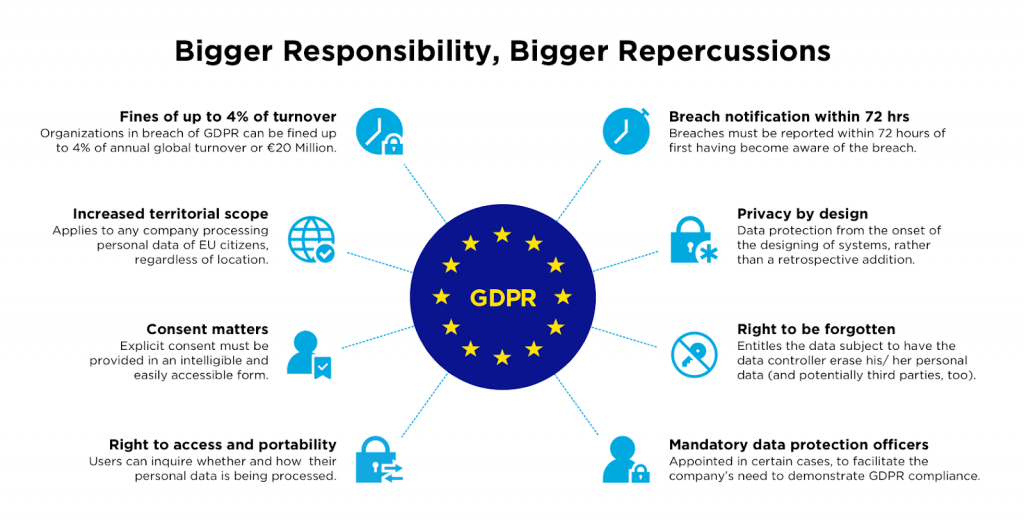In the age of digital transformation, the protection of personal data has emerged as a cornerstone of individual freedom and security. Europe has been at the forefront of this movement, with comprehensive privacy laws such as the General Data Protection Regulation (GDPR) setting a global standard for data protection.
While Ghana has taken significant steps by enacting the Data Protection Act, 2012, there is an ongoing conversation about the need for a more comprehensive digital privacy bill that addresses the nuances of the digital era.
As Ghana navigates its own digital future, the need for a robust digital privacy bill, akin to Europe’s GDPR, becomes increasingly apparent.
Details
Ghana’s existing Data Protection Act, 2012, represents a significant step towards safeguarding personal data within the nation. It established the Data Protection Commission, tasked with regulating the processing of personal information and upholding the privacy rights of individuals.
However, the rapid evolution of technology and the increasing complexity of the digital ecosystem demand a more nuanced and fortified legislative framework.
The European model offers a blueprint for Ghana to enhance its digital privacy legislation.
General Data Protection Regulation (GDPR)
The GDPR, for instance, provides a comprehensive set of rights for individuals, including the right to access, rectify, and erase personal data.

It also imposes stringent obligations on data controllers and processors, ensuring that personal data is not only collected legally but also protected against unauthorized access and breaches.
The journey towards a digital privacy bill in Ghana that mirrors the rigor of European legislation will not be without challenges. It requires a delicate balance between protecting individual rights and fostering an environment conducive to digital innovation and economic growth.
Potential Benefits Of a Digital Privacy Bill
A digital privacy bill in Ghana could serve several key functions:
- Enhance Consumer Trust: By establishing clear guidelines and protections for personal data, consumers can have greater confidence in digital services.
- Attract International Business: Strong privacy laws can make Ghana a more attractive destination for international companies looking for compliant countries to operate in.
- Promote Innovation: Clear regulations can encourage innovation by providing a stable legal environment for businesses to develop new technologies.
Digital Privacy Bill Proposal
A digital privacy bill in Ghana, inspired by European standards, would need to address several key components:
- Consent and Transparency: Individuals should have the right to be informed about the collection and use of their personal data, with the ability to consent actively and explicitly.
- Data Minimization and Purpose Limitation: Data collection should be limited to what is necessary for specified, explicit, and legitimate purposes, preventing data from being used in a way that is incompatible with those purposes.
- Data Portability: Individuals should have the right to transfer their personal data from one service provider to another, fostering competition and giving consumers more control over their information.
- Right to Erasure: Also known as the ‘right to be forgotten’, this allows individuals to request the deletion of their personal data under certain conditions.
- Data Protection by Design and by Default: Privacy should be embedded into the development of business processes and technologies, ensuring that data protection is an integral component from the outset.
- Cross-border Data Transfers: The legislation should provide clear guidelines for the transfer of personal data outside of Ghana, ensuring that the same level of protection travels with the data.
- Enforcement and Penalties: A robust enforcement mechanism is crucial, with the ability to impose significant penalties on those who violate privacy laws, serving as a deterrent against non-compliance.
The journey towards a digital privacy bill in Ghana that mirrors the rigor of European legislation will not be without challenges. It requires a delicate balance between protecting individual rights and fostering an environment conducive to digital innovation and economic growth.
Stakeholder engagement, public awareness, and capacity building within the Data Protection Commission will be essential components of this process.
In Ghana, the opportunity to craft a privacy bill that reflects the aspirations and values of its citizens, while aligning with international standards, is within reach.
Such legislation would not only safeguard the privacy rights of Ghanaians but also signal to the world that Ghana is committed to the principles of a fair and just digital economy.
Catch up on news and other tidbits on our WhatsApp Community Page, Twitter/X, and subscribe to our weekly newsletter to ensure you don’t miss out on any news.










